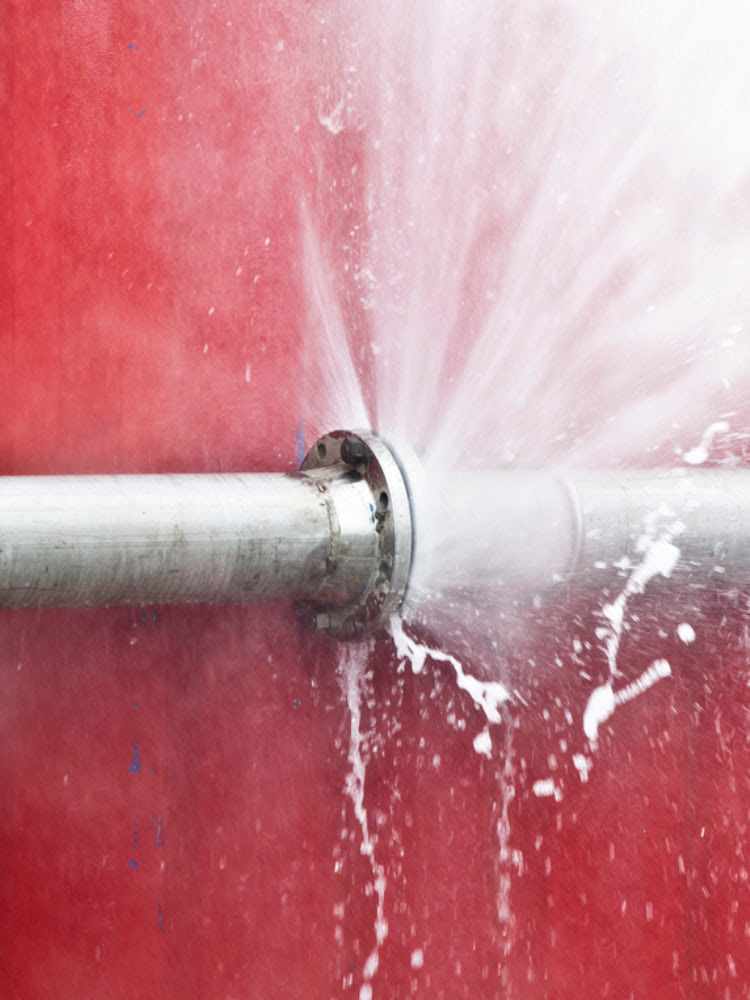The Home's Most Common Leak Factors: Investigation
The Home's Most Common Leak Factors: Investigation
Blog Article
We've noticed this post involving How to Find Water Leaks below on the net and thought it made sense to relate it with you on my blog.

Leaks not only create waste of water yet can also create unnecessary damage to your residence and advertise unwanted organic development. By looking and comprehending for day-to-day situations that cause leaks, you can secure your residence from future leaks and unneeded damage.
Intruding origins
Many water leaks begin outside the house rather than inside it. You may discover damp patches or sinkholes in your yard, and also that may imply that tree origins are attacking water lines triggering water to permeate out.
Corroded water systems
As time passes by, your plumbing system ages and deterioration such as corrosion might start gnawing the pipelines. This could be the root cause of discoloration or bending on your pipes. This requires an assessment with your plumber promptly. If our plumbing system is old, consider changing the pipelines since they are at a greater risk of corrosion than the more recent designs.
Malfunctioning Pipe Joints
The factor at which your pipelines connect is often the weakest web link in the waterline. Pipeline joints can degrade with time, leading to water leaks. However, the majority of pipeline joints are not quickly visible. If you have noisy pipes that make ticking or banging sounds, specifically when the hot water is turned on, your pipeline joints are possibly under a great deal of stress. It is suggested to have your plumber evaluate your system annually.
Immediate temperature changes.
Extreme temperature level adjustments in our pipes can trigger them to expand as well as get suddenly. This growth and contraction might create fractures in the pipelines, particularly if the temperature are below freezing. It would be best if you watched on just how your plumbing functions. The presence of the formerly discussed circumstances frequently suggests a high danger.
Poor Water Connectors
At times, a leak can be created by loose hose pipes and also pipelines that supply your home appliances. In case of a water connections leakage, you may discover water running straight from the supply line or puddles around your appliances.
Blocked Drains
Clogged drains pipes could be bothersome and inconveniencing, however they can occasionally end up causing an overflow bring about break pipelines. Maintain getting rid of any kind of materials that may drop your drains that might clog them to avoid such inconveniences.
All the above are reasons for leaks but not all water leaks result from plumbing leaks; some leakages may come from roof covering leakages. All leakages must be repaired right away to avoid water damages.
Leakages not only trigger waste of water yet can also cause unnecessary damages to your house and promote unwanted natural development. By looking and understanding for everyday situations that cause leaks, you can secure your house from future leaks as well as unneeded damages. Today, we will look at 6 leak creates that might be creating your pipelines to leak.
At times, a leakage can be caused by loosened tubes and also pipelines that supply your home appliances. In case of a water links leak, you might discover water running directly from the supply line or pools around your devices.
How To Check For Water Leak In Your Home
How To Check for Leaks
The average household's leaks can account for nearly 10,000 gallons of water wasted every year and ten percent of homes have leaks that waste 90 gallons or more per day. Common types of leaks found in the home are worn toilet flappers, dripping faucets, and other leaking valves. These types of leaks are often easy to fix, requiring only a few tools and hardware that can pay for themselves in water savings. Fixing easily corrected household water leaks can save homeowners about 10 percent on their water bills.
To check for leaks in your home, you first need to determine whether you're wasting water and then identify the source of the leak. Here are some tips for finding leaks:
Take a look at your water usage during a colder month, such as January or February. If a family of four exceeds 12,000 gallons per month, there are serious leaks.
Check your water meter before and after a two-hour period when no water is being used. If the meter changes at all, you probably have a leak.
Identify toilet leaks by placing a drop of food coloring in the toilet tank. If any color shows up in the bowl after 10 minutes, you have a leak. (Be sure to flush immediately after the experiment to avoid staining the tank.)
Examine faucet gaskets and pipe fittings for any water on the outside of the pipe to check for surface leaks.
Undetected water leaks can happen without the home or business owner even realizing. If you suspect a water leak, but not able to find the source. It is time to contact a professional water leak detection service, The Leak Doctor.
How To Find a Water Leak In Your Home
https://www.leakdoctor.com/blog/How-To-Check-For-Water-Leak-In-Your-Home_AE197.html

I found that review about Most Common Causes of Leaky Pipes when browsing on the search engines. In case you appreciated our article please make sure you remember to share it. Thanks for your time invested reading it.
Leaks? Contact us! Report this page